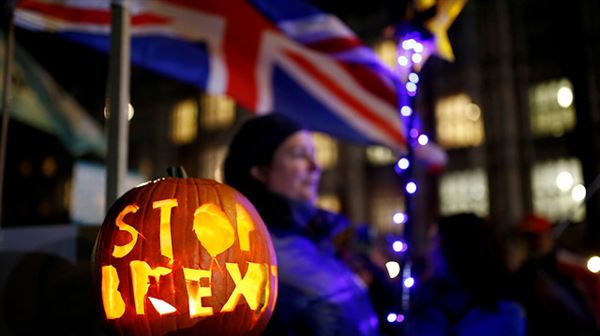Britain's central bank looks set to keep interest rates unchanged next week, despite a weak economic outlook, as it awaits a snap election that could
Britain’s central bank looks set to keep interest rates unchanged next week, despite a weak economic outlook, as it awaits a snap election that could reshape Brexit and bring more public spending.
The Bank of England, unlike the U.S. Federal Reserve and the European Central Bank, has not cut rates as the trade war between the United States and China caused a global economic slowdown.
Britain’s economy has weakened, too, although the BoE is unlikely to make much change to its August forecasts for annual growth of 1.3% this year and next. That is about a percentage point below the growth rate before June 2016’s Brexit referendum.
Despite the slowdown, BoE has hesitated to step away from its long-term message that it expects to gradually raise rates from post-financial crisis lows as a jobs boom and robust wage growth suggests there is not much slack in the economy.
Complicating the outlook for the BoE had been the risk that Britain might leave the European Union without a transition deal on Oct. 31, requiring decisive action by the central bank.
Now Brexit has been postponed for a third time, until Jan. 31, and Prime Minister Boris Johnson has called an early election for Dec. 12 to try to get a majority to pass his new, harder Brexit deal through parliament.
If the opposition Labour Party wins, it will seek to negotiate a new deal and hold a referendum on it, potentially overturning the decision to leave the EU.
“It’s a nightmare for them, really,” HSBC economist Liz Martins said, referring to the BoE’s Monetary Policy Committee. “Against that backdrop they will err on the side of caution, sound dovish, and do nothing.”
The BoE’s Bank Rate stands at 0.75%, unchanged since a quarter-point increase in August 2018.
Two external MPC members, Michael Saunders and Gertjan Vlieghe, have said the BoE cannot ignore the damage that Brexit uncertainty is doing, and a rate cut might be needed soon.
Even if Johnson wins a majority in the election and passes his Brexit transition deal before Jan. 31, another deadline will soon loom — Dec. 31, 2020, when a planned Brexit transition is scheduled to end.
If longer-term trade talks collapse before then, Britain would face EU tariffs on its exports and high regulatory barriers.
Other BoE officials are wary about a rate cut. Deputy Governor Dave Ramsden has said the Brexit effect – felt most keenly on business investment – is hurting the economy’s underlying productive capacity. Rate cuts would boost inflation, rather than growth, he warned.
In the short term, Britain does not look at risk of recession. Last month, the BoE said extra public spending announced by the government would add 0.4% to growth over the next couple of years.
Finance minister Sajid Javid has promised new fiscal rules and said low bond yields make it cheaper for the government to borrow to invest. The opposition Labour Party also wants large increases in public spending.
Official growth data through to August has been stronger than gloomy business surveys, suggesting third-quarter growth of 0.4% to 0.5% versus a BoE forecast of 0.2%, said Ross Walker, chief UK economist at NatWest Markets.
In the next couple of months, approval of the Brexit deal may boost sentiment – and keep the BoE away from a rate cut at the end of January, when Governor Mark Carney is scheduled to step down, on the same day as the latest Brexit deadline.
All this, though, was likely to prove a false dawn, because the difficulty of reaching a longer-term trade agreement with the EU will become apparent early in 2020, Walker said, predicting a “problematic, slow-burn Brexit” and a rate cut by May.
Financial markets price in around a 45% chance of this, and an 85% chance of a quarter-point rate cut by the end of 2020.
